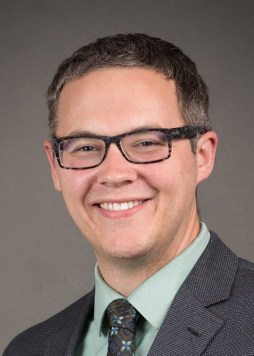
Assistant Professor of Psychology John Medaglia, PhD, talks ballroom dancing, maturing friendships and how interdisciplinary science can shape our community.
Hometown: Collegeville, Pennsylvania
Degree: PhD in Clinical Psychology from Pennsylvania State University
Research interests: “Mind Control,” Neural Stimulation, Neural Network Analysis, Human Wellbeing
What did you do before coming to Drexel?
I was a research assistant professor of psychology at the University of Pennsylvania.
What is your favorite book? Movie?
Favorite book: “The Name of the Wind” by Patrick Rothfuss
Favorite movie: “The Matrix”
What is your favorite food or restaurant?
Favorite food: Brick-oven pizza piled high with as many toppings as possible.
Favorite restaurant: Smoky Oak Taproom in Charleston, South Carolina. If you find a superior barbecue restaurant, please inform me immediately.
When is the last time you did something “for the first time”? What was it?
I learned to samba for the first time this summer. No, I’m not very good at it.
What/who inspires you?
I am generally inspired by people who give generously and derive sincere pleasure from mentoring others. I have been fortunate to have worked with several such mentors.
If you could have any super power, what would it be?
As a youth, super strength. As a faculty member, super speed!
What was the most impactful moment of your own college career?
As an undergraduate at Drexel, I contacted Professor Douglas Chute, faculty in our very own psychology department, about my interest in brain science. The next day, he began our conversation by asking, “So, you think you want to study neuropsychology?” Three hours later I was hooked, and here I am today.
Which current event/issue do you think students should know more about and why?
How acculturation processes shape political opinions and how social dynamics maintain them.
What would students be surprised to learn about you?
I am learning ballroom dance with my wife and I spend some weekends competing in competitive tabletop wargaming tournaments.
If you could relive a moment in your life what would it be?
It’s a series of related moments. Last summer, my wife and I attended eight weddings. They reminded me that as the years go on, staying in touch will become more difficult, but the degree to which we value our friends will always persist. In hindsight, I wish those weddings had been spaced out to experience those moments with everyone in a single place year after year, but I otherwise would not trade that summer for the world.
What did you want to be when you were a kid? What made you want to become a professor?
As a young kid, I wanted to be an astronaut (or probably more honestly, a Jedi). I wanted to become a professor very early once I realized that I enjoyed the quest for knowledge and the ideal that curiosity, benevolence and science can make the world a better place. I still maintain that idealism.
What do you consider to be your biggest achievement thus far in your career?
Receiving an NIH Director’s Early Independence Award in 2015 to begin developing my research program.
What do you hope to add to the CoAS community?
I hope to add an interest in interdisciplinary science that examines how we can promote human wellbeing. The lens of network science can help us understand how the interactions of the forces around us govern processes that challenge us and allow us to thrive in our careers, at home, and in our communities. Through my dedicated research at the individual level and my role as a CoAS community member, I hope to help identify and promote these opportunities throughout my career here. I believe CoAS and Drexel present incredible avenues for this within and around the university, and I’m eager to get started.